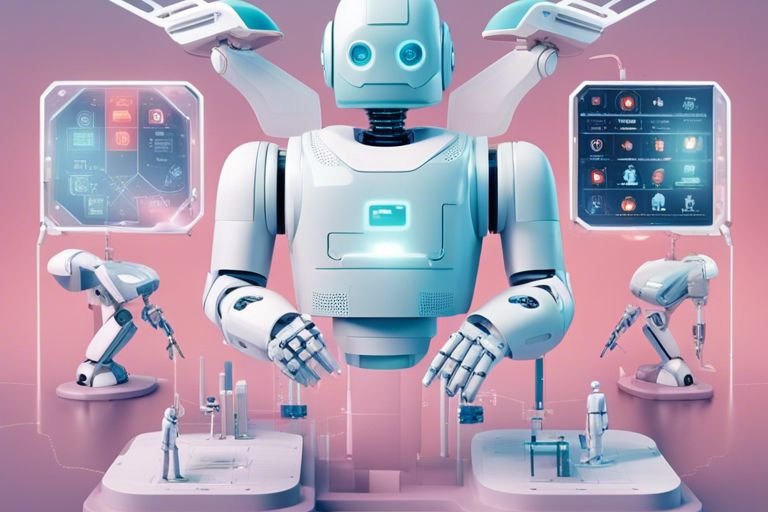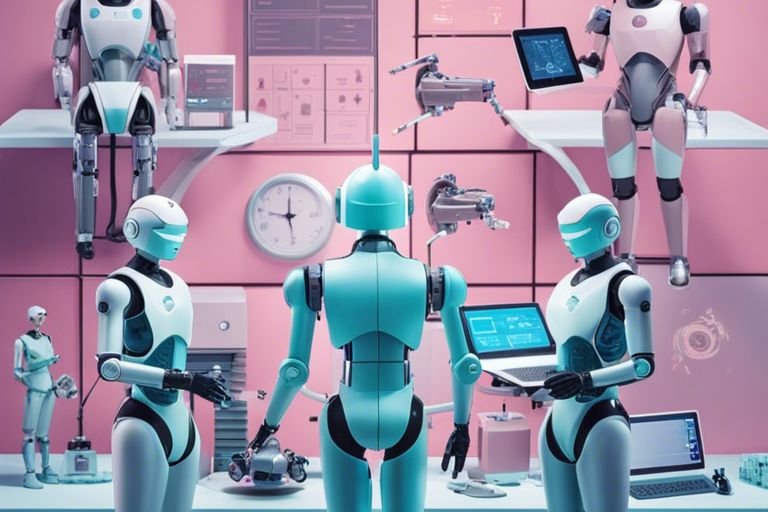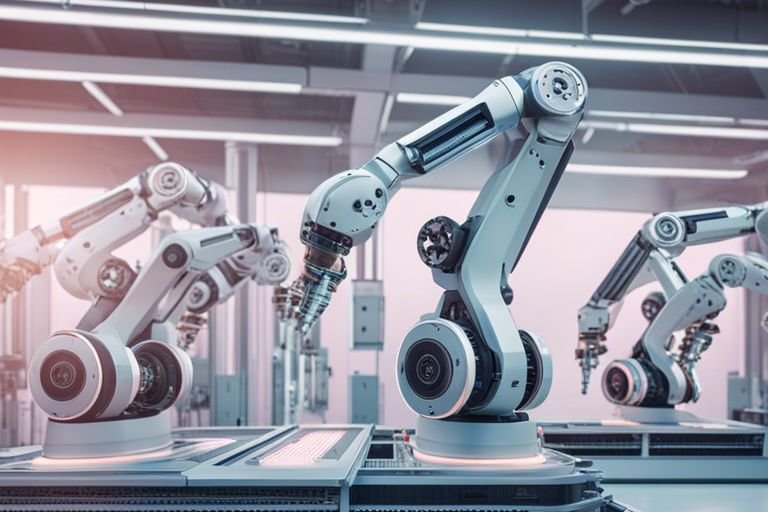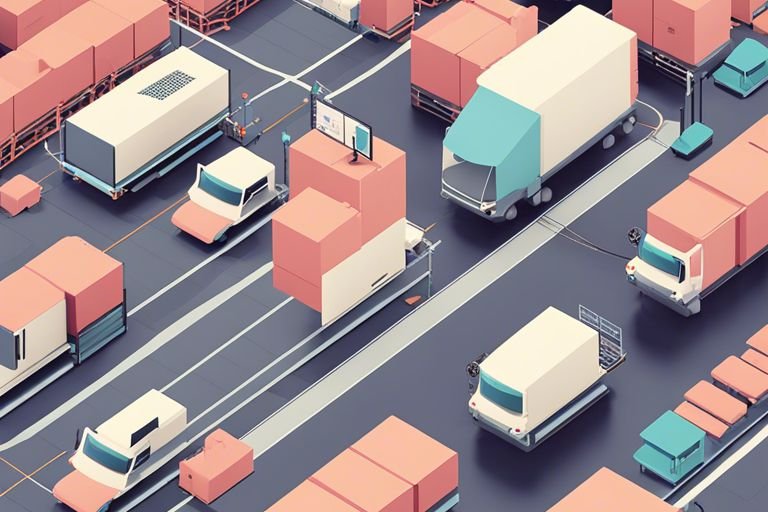How will Artificial Intelligence impact the job market in the future?

Delve into the uncertain world of Artificial Intelligence and its potential impact on your career. As technology continues to advance, AI is poised to revolutionize the job market in unprecedented ways. While it holds the promise of streamlining processes and increasing efficiency, it also poses a significant threat to many traditional job roles. It’s essential to understand the potential ramifications so that you can stay ahead of the curve and adapt to the changing landscape of employment. In this blog post, we will explore the positive and dangerous aspects of AI’s impact on the job market and provide valuable insights into how you can prepare for the future.
Key Takeaways:
- Automation of routine tasks: Artificial Intelligence is likely to automate routine and repetitive tasks, leading to a decrease in demand for low-skilled and manual jobs.
- New job opportunities: While some jobs may be displaced, AI will also create new job opportunities in fields such as data analysis, programming, and AI development, requiring advanced technical and analytical skills.
- Need for re-skilling: The job market will require individuals to adapt and re-skill to meet the demands of AI, emphasizing the importance of continuous learning and development of technical, creative, and interpersonal skills.
The Evolution of Artificial Intelligence
Any discussion about the impact of artificial intelligence on the job market must begin with an understanding of its evolution. Throughout history, AI has gone through various stages of development, each marked by significant milestones and breakthroughs that have brought us to where we are today.
History and Milestones
AI has its roots in ancient history, with early civilizations exploring the concept of creating artificial beings. However, it wasn’t until the mid-20th century that significant advancements in computing and technology laid the groundwork for modern AI. In 1956, the term “artificial intelligence” was first coined at a conference at Dartmouth College, and the field has since seen major milestones such as the development of expert systems, neural networks, and the creation of IBM’s Deep Blue, which famously defeated a world chess champion in 1997. These breakthroughs have paved the way for the current state of AI and its potential impact on the job market.
AI’s Current State and Capabilities
Today, AI has seen unprecedented growth and advancement, thanks in part to the availability of big data and powerful computing resources. Machine learning algorithms and deep learning techniques have enabled AI to accomplish tasks that were once thought to be exclusive to humans, from image recognition to natural language processing. AI has the potential to revolutionize industries, from healthcare to finance, by automating routine tasks and analyzing massive amounts of data at speeds beyond human capability. However, the rapid advancement of AI also raises concerns about its impact on the job market as automation and AI-powered systems threaten to displace certain roles and industries.

AI’s Impact on Various Industries
Assuming you are wondering how artificial intelligence will affect different industries, the answers are quite compelling. AI has the potential to transform the job market in various industries, paving the way for both positive and potentially challenging changes.
Automation in Manufacturing
With the advent of AI, the manufacturing industry is experiencing a significant shift. While this technology allows for greater efficiency and accuracy in production, it also has the potential to replace human workers in certain roles. Automation in manufacturing can lead to increased productivity and cost savings, but it also brings the concern of job displacement for those in traditional manufacturing roles. It’s important to consider the implications of this transformation and how it may impact your career in the manufacturing sector.
AI in Service and Knowledge Sectors
Across service and knowledge-based industries, AI is set to revolutionize the way tasks are performed. From customer service chatbots to data analysis and decision-making algorithms, AI has the potential to streamline processes and improve the overall efficiency of these sectors. However, as AI continues to advance, there is a growing concern about potential job displacement. While AI can enhance your ability to carry out tasks in these industries, it’s essential to stay informed about how the technology may shape the future of your job role.
Adapting to the AI Revolution
For many people, the thought of artificial intelligence (AI) impacting the job market can be daunting. However, it’s important to recognize that AI will also create new opportunities and transform the way we work. It’s crucial to adapt to this revolution by understanding the changing demands of the job market and equipping yourself with the necessary skills and knowledge to thrive in this new environment.
The Role of Education and Training
As AI continues to advance, the demand for technical skills such as programming, data analysis, and machine learning will only increase. Investing in education and training in these fields can greatly enhance your employability and open up new career opportunities. Additionally, acquiring a solid understanding of AI and its applications in your industry can give you a competitive edge. Continuing education and professional development should be a priority as you navigate the evolving job market influenced by AI.
Policy Implications and the Labor Market
The impact of AI on the labor market will pose challenges in terms of job displacement and the need for new regulations and policies to address these changes. However, it also presents opportunities for redefining job roles, enhancing productivity, and fostering innovation. Policies that support retraining and reskilling programs, as well as those that promote a smooth transition for displaced workers, will be crucial in minimizing the negative effects of AI on the job market. Keeping abreast of these policy developments and advocating for initiatives that prioritize the well-being of workers will be essential in shaping a favorable work environment in the AI era.
By understanding the evolving demands of the job market in the era of AI, and by proactively equipping yourself with relevant skills and knowledge, you can position yourself for success in the face of these changes. While there may be challenges and uncertainties, there are also opportunities for growth and innovation. Embracing this transformation and staying informed about policy implications will be critical in navigating the AI revolution in the job market.
The Future of Work with AI
Despite the uncertainty surrounding the impact of Artificial Intelligence (AI) on the job market, one thing is for sure: it will revolutionize the way we work. As AI continues to evolve and become more sophisticated, it will undoubtedly disrupt traditional job roles and create new opportunities. Understanding how AI will shape the future of work is crucial for navigating the changing job landscape.
Job Creation and AI’s Potential
AI has the potential to create new job opportunities across various industries. As AI technologies advance, new roles will emerge that require unique skill sets and expertise to develop and manage these technologies. For example, there will be a growing demand for AI engineers, data scientists, and machine learning specialists to design, implement, and maintain AI systems. Additionally, AI will drive the creation of jobs in sectors such as healthcare, finance, and manufacturing, as organizations seek to leverage AI to improve efficiency, accuracy, and innovation. Embracing AI’s potential for job creation is essential for preparing yourself for the future workforce.
Navigating Job Displacement
While AI presents opportunities for job creation, it also raises concerns about job displacement. As AI automates routine tasks and processes, certain job roles may become obsolete, leading to potential workforce disruptions. However, it’s important to recognize that AI will also augment human capabilities, allowing you to focus on higher-value, non-routine tasks that require creativity, emotional intelligence, and critical thinking. To navigate potential job displacement, it’s crucial to continuously upskill and adapt to the evolving demands of the workforce. By acquiring new skills and competencies, you can position yourself for success in the AI-driven job market.
Conclusion: The Impact of Artificial Intelligence on the Job Market
Considering all points, it is evident that Artificial Intelligence will significantly impact the job market in the future. As technological advancements continue to progress, certain jobs will become automated, leading to a shift in the job market landscape. While some jobs may be replaced by AI, new opportunities will also arise as a result. It is crucial for you to adapt and acquire new skills to remain competitive in the ever-evolving job market. Embracing change and gaining expertise in AI-related fields will be essential to thrive in this new era. Overall, the impact of AI on the job market will necessitate continuous learning and adaptation to stay ahead of the curve.



